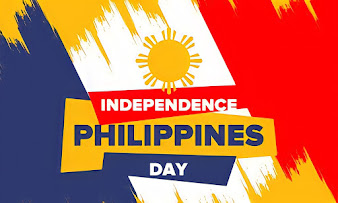Over
120 years ago, the Philippines, a collection of over seven thousand islands in
the western Pacific, declared freedom from Spanish domination. This claim was
made by Gen. Emilio Aguinaldo, but it wasn't until 1962 that then-President
Diosdado Macapagal declared it a national holiday through a presidential
decree. On this day in 1898, the Filipino flag was unfurled for the first time
amid an exciting ceremony that included the first public performance of the
Philippines national anthem. The country has come a long way. It is regarded as
a developing market and a recently industrialized nation.
The
Philippines were a Spanish territory for over 300 years and called after King
Philip II of Spain. The Philippines prospered throughout the Spanish period,
and their rule was unremarkable. However, on April 30, 1898, the Spanish fleet
was defeated by the Americans in Manila Bay. Filipino rebels surrounded Manila,
seizing the opportunity, and on June 12th, their commander Emilio Aguinaldo declared
the Philippines independent. However, when Aguinaldo was captured in 1902 American
rule took over.
On
June 12, the Philippines commemorated their 123rd Independence Day. Official
ceremonies were held across the country at government buildings and other major
locations, including the Aguinaldo Shrine in Kawit, Cavite Province, where the
proclamation of independence took place. Each event drew dozens to hundreds of
participants; because to COVID-19 limits and concerns, turnout would likely be
fewer than in former years.
In
the Philippines, the celebration of Independence Day is particularly important.
This commemoration reminds us to remember our soldiers' sacrifices and to value
sovereignty. These valiant efforts should be regarded with the same reverence
as the gift of dominion. To show that we care about our country. It is critical
not just to commemorate this occasion, but also to remember its significance
for the Philippines. The goal is to raise awareness about Filipino culture. May
this day serve as a reminder of our hard-won freedom as well as an occasion to
celebrate Filipino heritage, culture, and custom.
In
honor of the 123nd Independence Day of the Philippines let us remind ourselves
why it’s vital to commemorate this historic proclamation, let’s recall lines
and quotations from famous Filipinos who were significant figures to the
freedom that we enjoy today.
https://nationaltoday.com/philippines-independence-day/amp/#aoh=16252393894904&_ct=1625239305992&referrer=https%3A%2F%2Fwww.google.com&_tf=From%20%251%24s
https://www.google.com/imgres?imgurl=https%3A%2F%2Ft3.ftcdn.net%2Fjpg%2F03%2F48%2F27%2F78%2F360_F_348277876_nQOiKfPABzyhSnyaz7i8mCohQzwzQns4.jpg&imgrefurl=https%3A%2F%2Fstock.adobe.com%2Fau%2Fsearch%2Fimages%3Fk%3Dphilippines%2520independence%2520day&tbnid=0iaw8JVsnvdoTM&vet=1&docid=N45IJDku7rapMM&w=600&h=360&itg=1&hl=en-US&source=sh%2Fx%2Fim
https://images.app.goo.gl/VqXPn6EYMe5mcVTL8


Comments
Post a Comment